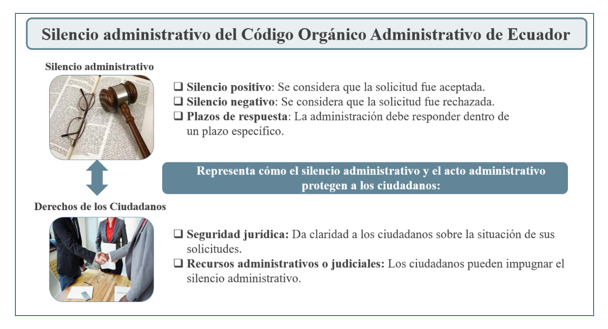Neutrosophic Cognitive Map to evaluate administrative silence in the context of the Administrative Organic Code of Ecuador
Main Article Content
Abstract
The objective of this research is to implement a neutrosophic method to evaluate administrative silence in the context of Ecuador's Organic Administrative Code. Administrative acts, as a unilateral manifestation of the public administration's will, generate specific legal effects on the rights and duties of citizens, facilitating the implementation of policies and decisions that directly impact the population. In this framework, administrative silence is configured as an essential mechanism, acting when the administration fails to respond to a request within the legal timeframe, guaranteeing a balance between the need for rapid responses and the protection of citizens' rights. This silence prevents defenselessness and arbitrariness in public management, ensuring that the administration acts with transparency and an obligation to respond. Thus, both administrative acts and administrative silence are interrelated concepts that regulate the dynamics between the public administration and citizens, being crucial for efficient and fair public management. The implementation of a neutrosophic method in this area will allow for a more complex and precise assessment of administrative silence, promoting a broader understanding of its impact on the exercise of citizens' rights and the legality of public administration.
Downloads
Article Details

This work is licensed under a Creative Commons Attribution 4.0 International License.

